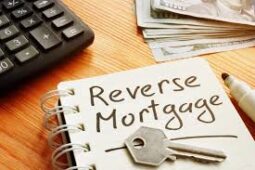For many retirees, their home is their largest asset—and tapping into that equity can seem like a smart way to boost retirement income. One increasingly common option is the reverse mortgage, but like any financial tool, it comes with both pros and cons.
If you’re a homeowner aged 62 or older, here’s what you should know about reverse mortgages—along with a few rules of thumb, alternatives, and pitfalls to avoid.
🔄 What Is a Reverse Mortgage?
A reverse mortgage, formally called a Home Equity Conversion Mortgage (HECM), allows seniors to borrow against their home’s equity without making monthly mortgage payments. Instead, the loan is repaid when the homeowner sells the house, moves out permanently, or passes away.
The most common type is FHA-insured and allows the homeowner to receive funds as a lump sum, line of credit, or monthly payment.
✅ Pros of a Reverse Mortgage
-
No Monthly Mortgage Payments – You don’t have to make monthly loan payments as long as you live in the home.
-
Stay in Your Home – You retain ownership and can remain in your home for as long as you want.
-
Tax-Free Funds – The money you receive is not taxable income.
-
Flexible Access – Receive funds in a lump sum, monthly payments, or line of credit.
⚠️ Cons of a Reverse Mortgage
-
Fees & Interest Add Up – Upfront costs can be steep, and interest accrues over time, reducing your equity.
-
You Must Maintain the Home – Failing to pay taxes, insurance, or upkeep can lead to foreclosure.
-
Less to Leave Heirs – The loan balance grows over time, often leaving less inheritance.
-
It’s a Loan, Not Free Money – Many seniors misunderstand that a reverse mortgage is still a debt against their home.
📏 Rules of Thumb to Know if It’s Right for You
-
✅ You plan to stay in your home long-term
Reverse mortgages work best when you intend to age in place for 5+ years. -
✅ You have substantial home equity
These loans make more sense if you own your home outright or owe very little. -
✅ You’re struggling with fixed income but have no desire to sell
If you want to stay put but need money for bills, health care, or home improvements, this can offer flexibility. -
❌ You plan to move or sell soon
The costs and setup don’t make sense for short-term stays. -
❌ You want to preserve equity for heirs
This loan will reduce the inheritance you leave behind.
🔁 Alternatives to a Reverse Mortgage
-
Home Equity Line of Credit (HELOC) – Lower upfront costs but requires monthly payments.
-
Cash-Out Refinance – May offer better rates and terms, but also comes with monthly payments.
-
Downsize or Sell – Sell your current home and move into something more affordable, freeing up equity.
-
Life Insurance Loans or Annuities – For some seniors, these can supplement income in a structured way.
-
Rent a Portion of Your Home – In The Villages®, some seniors offset expenses by renting to fellow retirees or seasonal visitors.
Final Thoughts
A reverse mortgage can be a lifeline or a trap—depending on your goals, financial situation, and understanding of the product. Before moving forward, always speak with a HUD-approved housing counselor and consult a financial advisor or estate planner.
Thinking about your next move or how to maximize your home equity? At ChrisDayHomes.com, I help seniors navigate big decisions with confidence, whether you’re looking to age in place or downsize into a home that better fits your lifestyle.
Let’s talk about your options—without the pressure.
